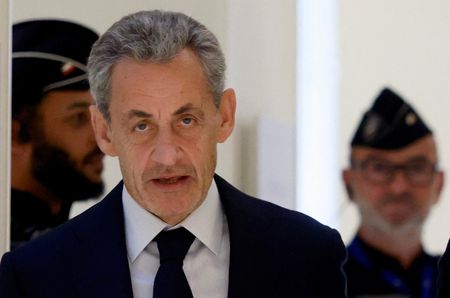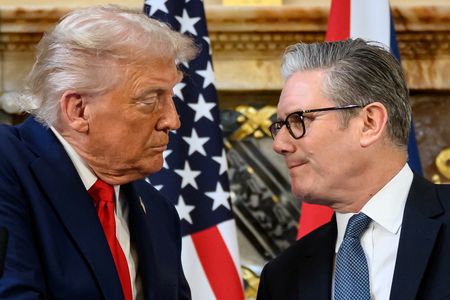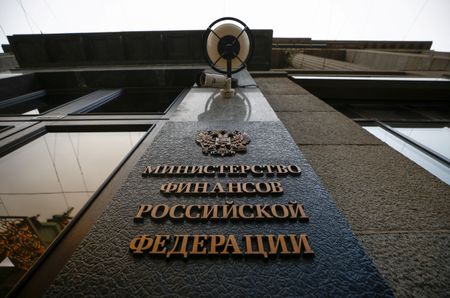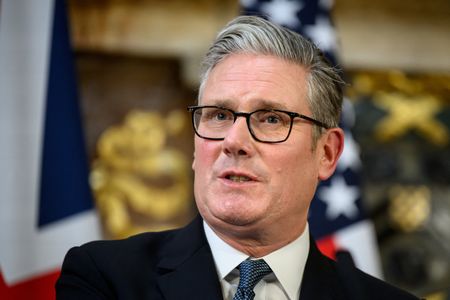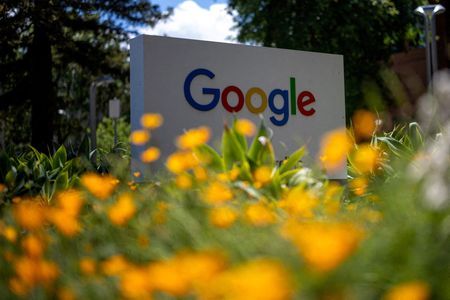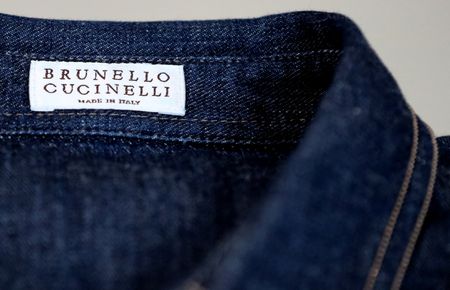By Gabriel Stargardter and Elizabeth Pineau
PARIS (Reuters) -The grubby backroom deals and “bling bling” reputation that many French people have come to associate with Nicolas Sarkozy during his 2007-2012 presidency came back to haunt him on Thursday, as he became the first leader of modern-day France to face jail for a criminal conviction.
The ruling marked a stunning downfall for Sarkozy, 70, who was sentenced to five years in prison over his aides’ efforts to procure funds for his 2007 presidential bid from Libya during the rule of late dictator Muammar Gaddafi. After the ruling, Sarkozy reiterated his innocence, saying his conviction undermined faith in France’s judiciary.
“If they absolutely want me to sleep in jail, I will sleep in jail, but with my head held high,” he said outside court.
Sarkozy’s taste for the finer things in life – which won him the nickname “President Bling Bling” – raised eyebrows, while his reputation for seeming to mix business and pleasure, the public and the private, grew throughout his presidency.
“In the popular imagination, criminal conspiracy really suggests Mafia-like behaviour,” political scientist Bruno Cautrès told Reuters. “It’s associated with serious organised crime. This adds to the ‘bling-bling’ image that followed him during his presidency.”
He faced legal battles almost immediately after leaving office, and had already been convicted of corruption, influence peddling, and illegal campaign financing in two other cases.
SHAKING UP THE SYSTEM? OR SHAKING IT DOWN?
The ambitious son of a Hungarian immigrant, Sarkozy became president in 2007, pledging to shake things up with Anglo-Saxon, pro-business reforms that would reinvigorate France’s stagnant economy and elevate the country to the top table of global players.
Those efforts were quickly upended by the 2008-2009 economic crisis, and voters gave him little credit for raising the retirement age to 62 from 60 and loosening the 35-hour work week – reforms that earned him the moniker of the Gallic Thatcher.
His American-style energy, abrasive manner and thirst for the limelight did not sit well with those who saw him as an undignified successor to more discreet presidents of the past. Many in France found it distasteful when Sarkozy celebrated his 2007 election win with millionaire buddies at a swanky Paris brasserie.
That was followed by public dismay over his high-profile break-up with his second wife, just weeks after his election, and his whirlwind courtship of former supermodel Carla Bruni, whom he married in early 2008.
“Love is the answer,” Bruni wrote in an Instagram post on Thursday beneath a photo of the couple striding through the court.
ENDURING INFLUENCE
His tough-on-crime attitude, coupled with his fraught relationship with inhabitants of the immigrant-heavy neighbourhoods around French cities, appealed to those on the right but made him deeply unpopular among many on the left.
Despite his mounting legal woes, his political influence has proved resilient as French society has shifted to the right. He regularly speaks with French President Emmanuel Macron, sources said. The Elysee did not respond to a request for comment.
In one of his first acts after taking office this month, conservative Prime Minister Sebastien Lecornu went to visit his former mentor at his offices. Sarkozy also met earlier this year with Jordan Bardella, the young party president of the far-right National Rally (RN), who many tip to be a future president.
FORMER MAYOR TURNED PRESIDENT
A lawyer by training, Sarkozy built his political base as mayor of the upmarket Paris suburb of Neuilly.
He became right-hand man to Prime Minister Edouard Balladur in 1993-95 and turned his back on his former mentor Jacques Chirac. After Chirac won the presidency in 1995, Sarkozy spent seven years in the political wilderness.
Chirac is the only other post-war former French head of state to have been found guilty in a criminal court. He was convicted in 2011 of misusing public funds when he was Paris mayor and was handed a suspended sentence.
Sarkozy returned as a tough interior minister in 2002-04 and 2005-07, serving as finance minister in 2004-05.
He improved ties with Washington, returning French forces to NATO’s military command for the first time since 1966, negotiated a ceasefire in a brief 2008 war between Russia and Georgia, and led Western military action in Libya.
(Reporting by Gabriel Stargardter and Elizabeth Pineau; Editing by Hugh Lawson)

